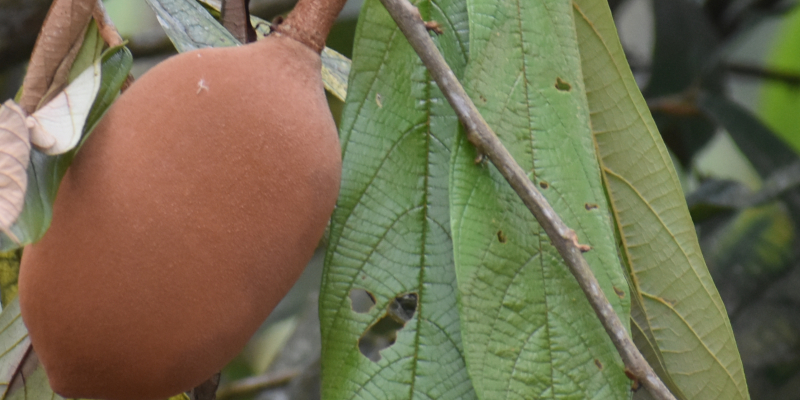In This Section
Domestication of the Amazonian fruit tree cupuaçu may have stretched over the past 8000 years

A new publication by Dr James Richardson of BEES and colleagues from University of Sao Paulo.
Amazonia is known for being one of the most biodiverse places on Earth and for playing a critical role in global ecosystem services. Despite the importance of this biodiversity much remains to be discovered. Cultivated Amazonian species include açaí, pineapple, cassava and Theobroma cacao (the source of chocolate). One plant species that has been poorly documented is cupuaçu (Theobroma grandiflorum). Cupuaçu is a fruit tree closely related to cacao that is valued for its seed-pulp that is used to produce fruit juice and "cupulate", a confectionery similar in flavour to chocolate. The economic importance of cupuaçu is increasing, with an estimated production of over 21,000 tons in 2017, generating more than 11 million US dollars in revenue for the year.
In a study by Matheus-Colli Silva of the University of Sao Paulo, co-supervised by Dr James Richardson at BEES, population genomic data were used to explore the domestication history of cupuaçu. Results indicated that cupuaçu is a domesticated form of a related species called cupuí (Theobroma subincanum). Domestication of cupuaçu involved selection of individuals of cupuí with larger fruits and seeds. The research shows that indigenous groups began the domestication process 5,000-8,000 years ago. This process was then intensified over the last two centuries principally by European colonists. Thnis neww study highlights the history of how the interaction between humans and plants has developed in Amazonia. Further studies will focus on how these plants might be sustainably utilized in the future.
You can read the full article here: https://www.nature.com/articles/s43247-023-01066-z
School of Biological, Earth and Environmental Sciences
An Scoil Eolaíochtaí Bitheolaíocha, Domhaneolaíocha agus Comhshaoil
Contact us
Distillery Fields, North Mall, University College Cork, Ireland , T23 TK30
